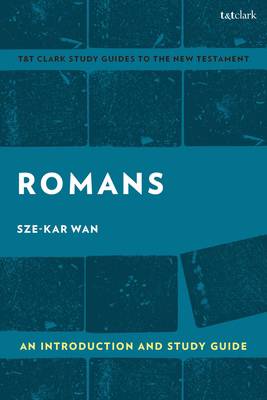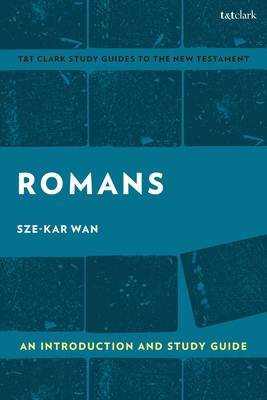
Bedankt voor het vertrouwen het afgelopen jaar! Om jou te bedanken bieden we GRATIS verzending (in België) aan op alles gedurende de hele maand januari.
- Afhalen na 1 uur in een winkel met voorraad
- In januari gratis thuislevering in België
- Ruim aanbod met 7 miljoen producten
Bedankt voor het vertrouwen het afgelopen jaar! Om jou te bedanken bieden we GRATIS verzending (in België) aan op alles gedurende de hele maand januari.
- Afhalen na 1 uur in een winkel met voorraad
- In januari gratis thuislevering in België
- Ruim aanbod met 7 miljoen producten
Zoeken
Omschrijving
Sze-kar Wan examines the social and political ramifications of Paul's last and longest letter. By taking seriously Paul's faithfulness to his ancestral tradition, Wan argues that Paul is engaged in ethnic construction by incorporating non-Jews into Ideal Israel. With its claim of universality and the cosmic Son of God installed as king, Ideal Israel stands in pointed opposition to the Roman Empire.
Wan presents the Letter to the Romans as Paul's extended argument to his Gentile audience in defence of Ideal Israel and their place in it, without ignoring such prominent themes as good news, faith and belief, eschatology, and the collection for the poor. By also including a reading of Romans 13 as resistance against absolute authority, at variance with historical interpretations that defended American slavery and German Nazism, Wan gives readers a new perspective on a defiant message that can be marshalled to resist oppressive regimes.
Wan presents the Letter to the Romans as Paul's extended argument to his Gentile audience in defence of Ideal Israel and their place in it, without ignoring such prominent themes as good news, faith and belief, eschatology, and the collection for the poor. By also including a reading of Romans 13 as resistance against absolute authority, at variance with historical interpretations that defended American slavery and German Nazism, Wan gives readers a new perspective on a defiant message that can be marshalled to resist oppressive regimes.
Specificaties
Betrokkenen
- Auteur(s):
- Uitgeverij:
Inhoud
- Aantal bladzijden:
- 136
- Taal:
- Engels
- Reeks:
Eigenschappen
- Productcode (EAN):
- 9780567693495
- Verschijningsdatum:
- 14/01/2021
- Uitvoering:
- Hardcover
- Formaat:
- Genaaid
- Afmetingen:
- 156 mm x 234 mm
- Gewicht:
- 371 g

Alleen bij Standaard Boekhandel
+ 305 punten op je klantenkaart van Standaard Boekhandel
Beoordelingen
We publiceren alleen reviews die voldoen aan de voorwaarden voor reviews. Bekijk onze voorwaarden voor reviews.









